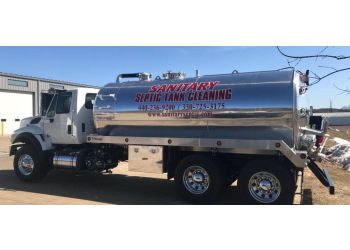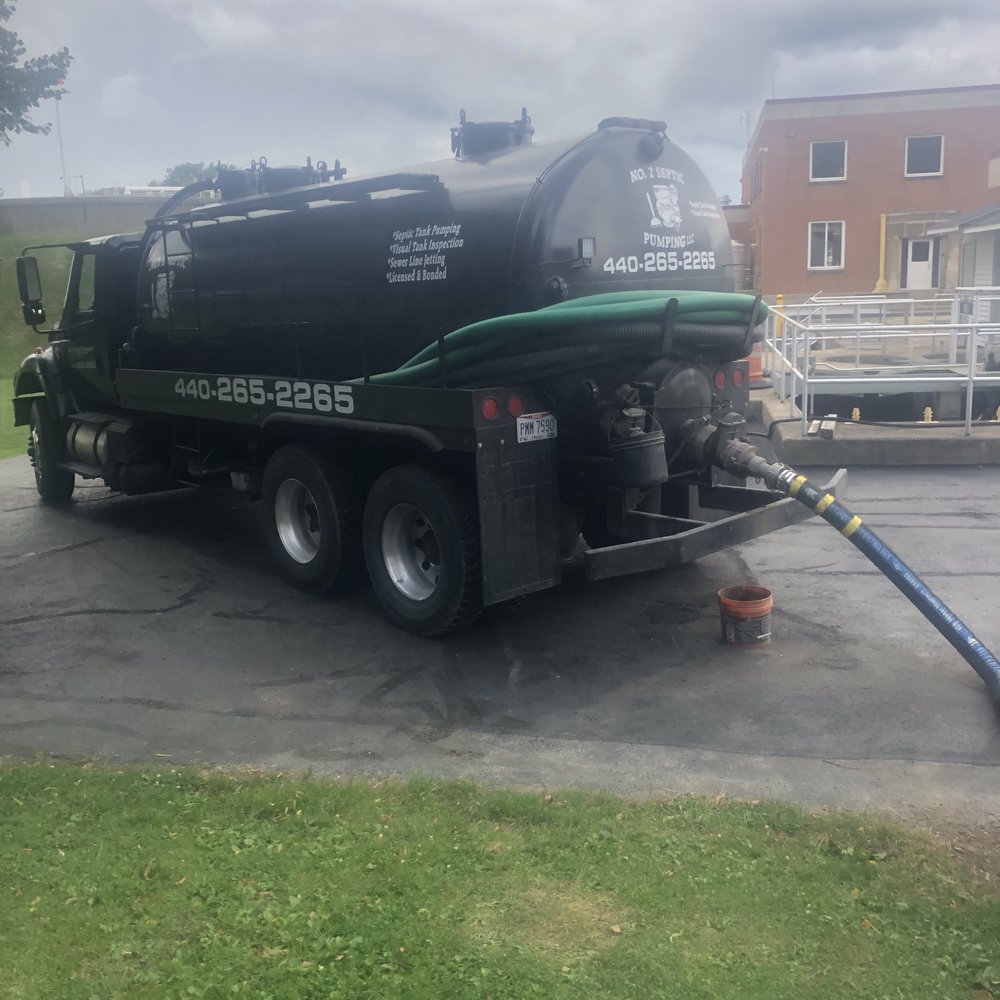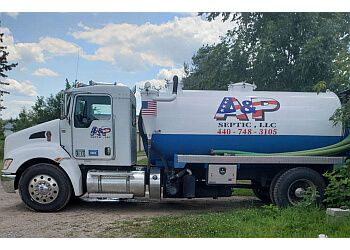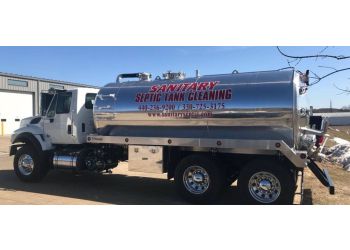If you are in Cleveland and in need of septic tank pumping services, you have come to the right place. Whether you are a homeowner, a business owner, or a property manager, taking care of your septic system is essential for the overall health and functionality of your property. With our professional and reliable septic tank pumping services, we can ensure that your system is functioning at its best and avoid any potential issues in the future. We understand the importance of a well-maintained septic system and are here to provide you with top-notch service in Cleveland.

1. Types of Septic Tank Pumping Services
1.1. Regular Pumping
Regular pumping refers to the routine maintenance and cleaning of your septic tank. It involves scheduled appointments with a professional septic tank pumping company to remove the accumulated solids and sludge from your tank. Regular pumping is crucial in ensuring the proper functioning and longevity of your septic system.
1.2. Emergency Pumping
Emergency pumping services are needed in situations where a septic system failure has occurred, resulting in sewage backup or other urgent issues. These services are available 24/7 and provide immediate assistance to address the emergency and prevent further damage to your property. Emergency pumping helps restore the functionality of your septic system and ensures the safety and hygiene of your home.
1.3. Maintenance Pumping
Maintenance pumping is a proactive approach to septic tank care. It involves scheduling regular pumping appointments even before any signs of a problem arise. By adhering to a maintenance pumping schedule, you can prevent potential issues, such as system failures or backups. Maintenance pumping helps maintain the efficiency and integrity of your septic system.
2. Signs that Your Septic Tank Needs Pumping
2.1. Foul Odors
One of the most obvious signs that your septic tank needs pumping is the presence of foul odors around your property. If you notice unpleasant smells, especially near your drains, toilets, or outside in your yard, it could indicate that your septic tank is full and requires immediate attention. The buildup of solids and sludge in your tank can lead to these odors seeping into your living spaces.
2.2. Slow Drainage
Another sign that your septic tank needs pumping is slow drainage throughout your plumbing system. If you find that your sinks, toilets, or showers are draining slowly or backing up, it may be an indication that your septic tank is reaching its capacity. The accumulation of solids and sludge in the tank can restrict the flow of wastewater, leading to drainage issues in your home.
2.3. Sewage Backup
One of the most concerning signs that your septic tank is in dire need of pumping is sewage backup. If you notice sewage or wastewater coming back up through your drains or toilets, it is a clear indication that your septic system is overwhelmed and unable to handle the volume of waste. Sewage backup poses significant health risks and requires immediate professional attention.
3. Importance of Regular Septic Tank Pumping
3.1. Prevents System Failures
Regular septic tank pumping is essential to prevent system failures. When your tank becomes overloaded with solids and sludge, it can lead to blockages, clogs, and even structural damage to your septic system. By removing accumulated waste through regular pumping, you can avoid costly repairs and ensure the proper functioning of your septic system.
3.2. Protects Groundwater Quality
Properly maintained septic tanks prevent the contamination of groundwater. When a septic system is not pumped regularly, it can overflow or leak, releasing harmful bacteria, pathogens, and pollutants into the surrounding soil and groundwater. Regular pumping helps remove these contaminants and protects the quality of the groundwater, which is crucial for drinking water sources and the environment.
3.3. Extends Lifespan of Septic System
Regular septic tank pumping extends the lifespan of your septic system. By removing solids and sludge that accumulate over time, you can prevent excessive strain on the system’s components, such as the pipes and drain field. This helps to minimize the risk of system failures and prolong the overall lifespan of your septic system, saving you from the expense of premature replacements.
4. Hiring a Professional Septic Tank Pumping Company
4.1. Researching Local Companies
When hiring a professional septic tank pumping company, it is important to research and identify reputable companies in your local area. Look for companies with a solid track record and positive customer reviews. Check if they specialize in septic tank pumping services and have experience in handling various types of septic systems.
4.2. Checking Certifications and Licenses
Ensure that the septic tank pumping company you choose has the necessary certifications and licenses to operate in your area. This guarantees that they have met the required standards and regulations for septic system maintenance and pumping. Certified professionals are more likely to provide high-quality services and adhere to industry best practices.
4.3. Reading Reviews and Testimonials
Reading reviews and testimonials from previous customers can give you valuable insights into the reliability and professionalism of a septic tank pumping company. Look for reviews that mention punctuality, customer service, and the overall satisfaction of clients. Positive feedback and recommendations indicate that the company is trustworthy and provides satisfactory results.

5. Factors Affecting Septic Tank Pumping Cost
5.1. Tank Size
The size of your septic tank will directly impact the cost of pumping. Larger tanks require more time, labor, and disposal fees, which can lead to higher overall costs. Conversely, smaller tanks may cost less to pump. It is important to consult with a professional to determine the size of your septic tank and get an accurate estimate of the pumping cost.
5.2. Tank Access
The accessibility of your septic tank also affects the pumping cost. If your tank is located in an easily accessible area, the pumping process will be quicker and more efficient, resulting in lower costs. However, if the tank is buried deep or obstructed by obstacles, additional equipment or labor may be required, increasing the overall cost of pumping.
5.3. Location
The location of your property can impact septic tank pumping costs. Factors such as distance from the pumping company’s base, local regulations, and disposal site availability can influence the pricing. Properties in remote or hard-to-reach areas may incur higher costs due to transportation expenses or limited disposal options.
6. The Process of Septic Tank Pumping
6.1. Inspection and Evaluation
The septic tank pumping process begins with an inspection and evaluation of your septic system. A professional technician will assess the condition of the tank, check for any signs of damage or blockages, and determine the appropriate pumping schedule. This step ensures that the pumping is performed accurately and efficiently.
6.2. Pumping the Tank
Once the inspection is complete, the septic tank pumping company will begin the actual pumping process. Specialized equipment is used to empty the tank of its contents, including solids, sludge, and any accumulated waste. The technician will ensure that all waste is thoroughly removed, leaving the tank clean and ready for continued use.
6.3. Proper Disposal of Waste
After the pumping process, the waste collected from your septic tank is transported to a designated facility for proper disposal. The waste is treated and processed according to local regulations and environmental guidelines to prevent any harm to the ecosystem. Trusted septic tank pumping companies prioritize safe and responsible waste disposal methods.

7. Tips for Maintaining a Healthy Septic System
7.1. Avoid Flushing Non-Biodegradable Items
To maintain a healthy septic system, it is crucial to avoid flushing non-biodegradable items down the toilets or drains. Items such as paper towels, sanitary products, diapers, or chemicals can clog your pipes and disrupt the balance within your septic tank. Stick to flushing only biodegradable materials to prevent unnecessary strain on your system.
7.2. Practice Water Conservation
Conserving water can significantly impact the health of your septic system. Excessive water usage can overload the system and lead to more frequent pumping requirements. Be mindful of water usage, fix any leaks promptly, and consider installing low-flow fixtures to reduce water consumption. Preserving water helps maintain the proper functioning of your septic system.
7.3. Schedule Regular Maintenance
In addition to regular pumping, scheduling routine maintenance for your septic system is essential. Regular inspections and maintenance services can identify and address potential issues before they become major problems. Professional technicians can assess the condition of your tank, check for leaks or damages, and provide recommendations for optimal system performance.
8. Frequently Asked Questions about Septic Tank Pumping
8.1. How often should I pump my septic tank?
The frequency of septic tank pumping depends on various factors such as household size, water usage, and tank capacity. As a general guideline, it is recommended to pump your septic tank every 3 to 5 years. However, consulting with a professional septic tank pumping company can provide a more accurate assessment based on your specific circumstances.
8.2. Can I pump my own septic tank?
Pumping your own septic tank is not recommended unless you have the necessary training, equipment, and understanding of local regulations. Septic tank pumping involves handling potentially hazardous waste and requires specialized equipment to ensure proper removal. Hiring a professional septic tank pumping company is the safest and most efficient option.
8.3. What happens if a septic tank is not pumped?
If a septic tank is not pumped regularly, the accumulated solids and sludge can clog the system, leading to blockages, backups, and even system failures. Untreated waste can also leak into the environment, contaminating groundwater and posing health hazards. Neglecting septic tank pumping can result in costly repairs, property damage, and potential health risks.

9. Septic Tank Pumping Services in Cleveland
9.1. Local Companies and Pricing
In Cleveland, there are several professional septic tank pumping companies that offer reliable services. Prices may vary depending on the specific company, tank size, and individual requirements. It is advisable to request quotes from multiple companies to compare prices and ensure you are receiving competitive rates for high-quality services.
9.2. Customer Reviews and Ratings
Before selecting a septic tank pumping company in Cleveland, it is important to read customer reviews and ratings. Reviews provide firsthand experiences and insights into the professionalism, reliability, and overall satisfaction of previous customers. Look for companies with positive reviews and a strong reputation within the local community.
9.3. Availability and Scheduling
Consider the availability and scheduling options offered by different septic tank pumping providers in Cleveland. Ensure that the company you choose can accommodate your timeline and requirements. Whether you need regular maintenance pumping or emergency services, selecting a company that is responsive and available when you need them is crucial.
10. Conclusion
Maintaining a healthy septic system requires regular pumping, proper maintenance, and attention to signs of potential issues. By understanding the different types of septic tank pumping services, the importance of regular pumping, and the factors affecting pumping costs, you can make informed decisions to ensure the longevity and functionality of your septic system. Hiring a professional septic tank pumping company, practicing proper maintenance, and following the tips provided in this article will help you keep your septic system in optimal condition. Remember, investing in the care of your septic system now can save you from costly repairs and potential health hazards in the future.

